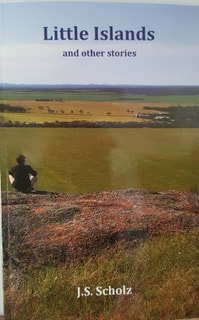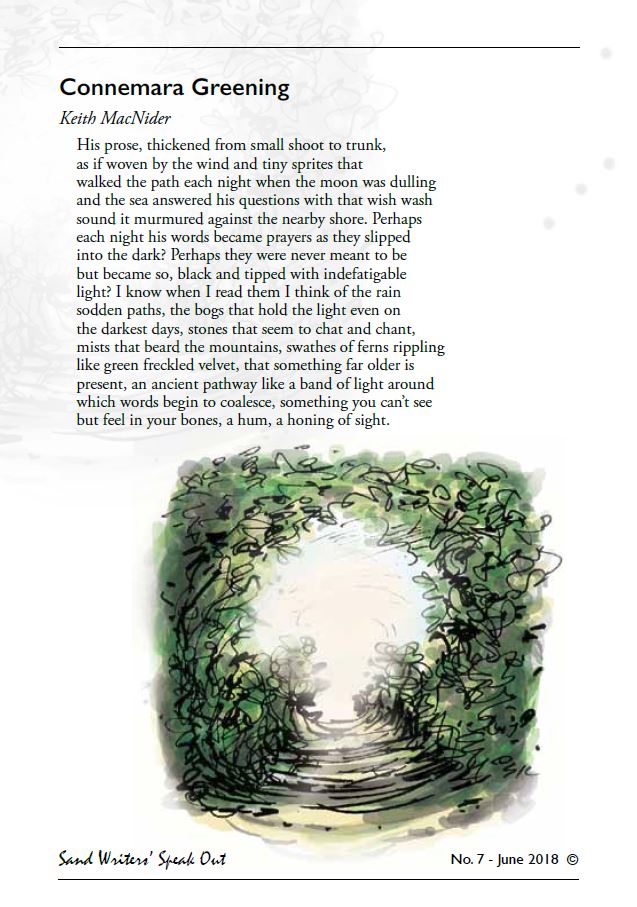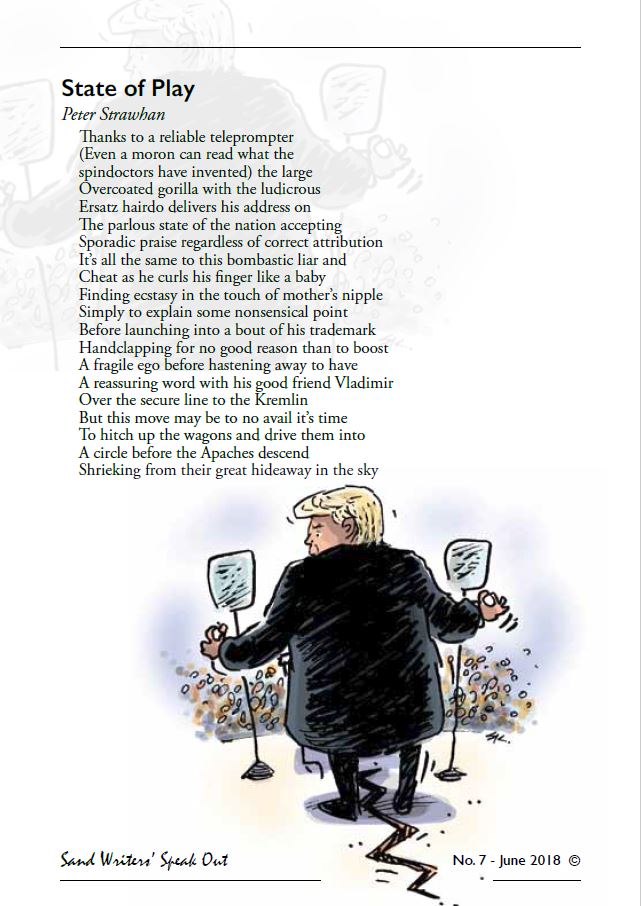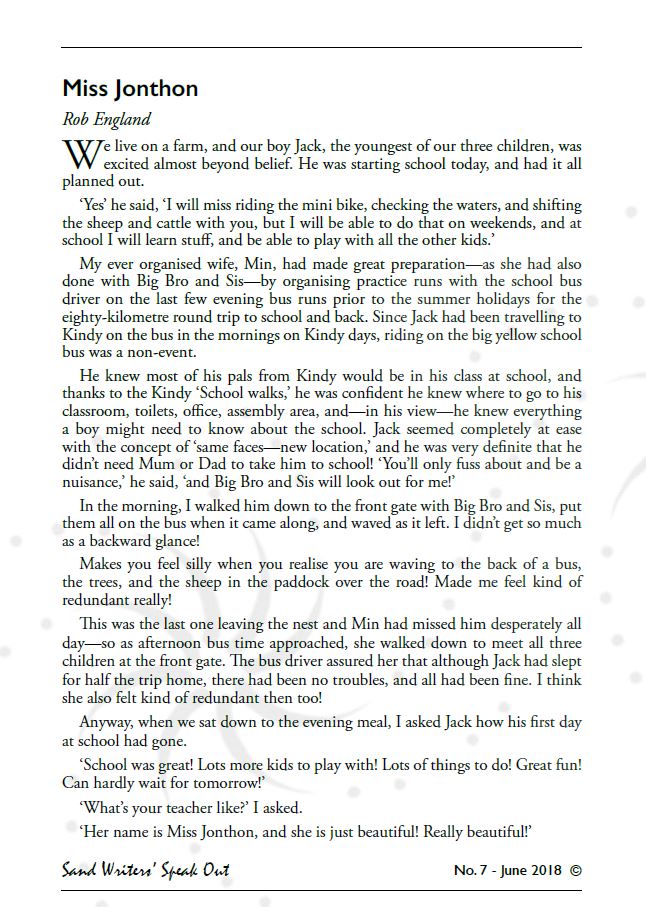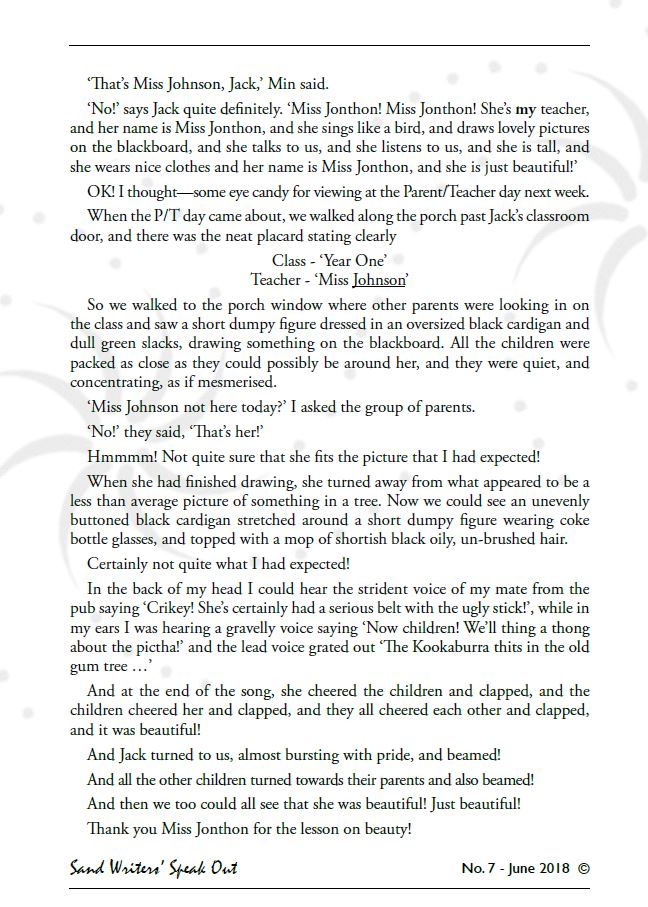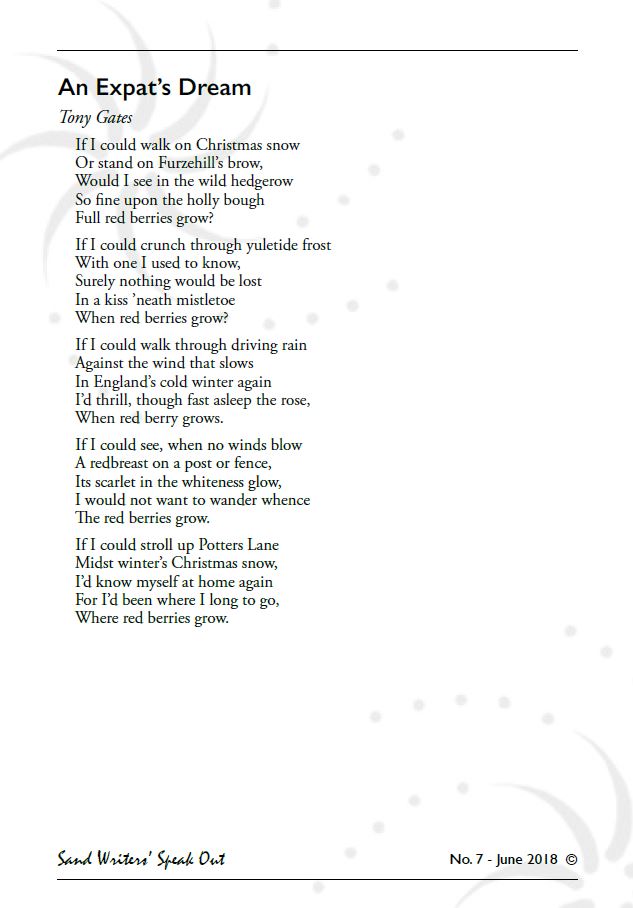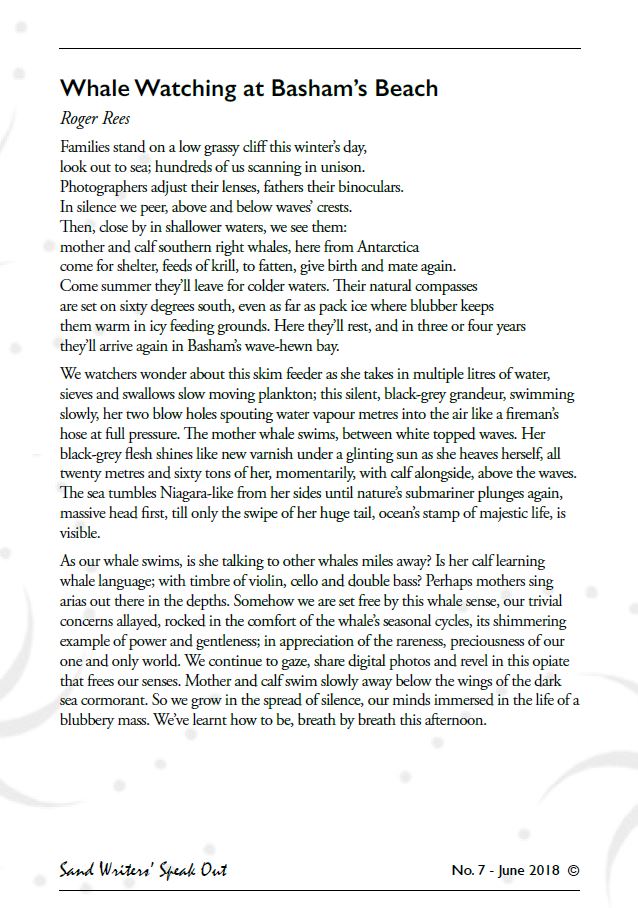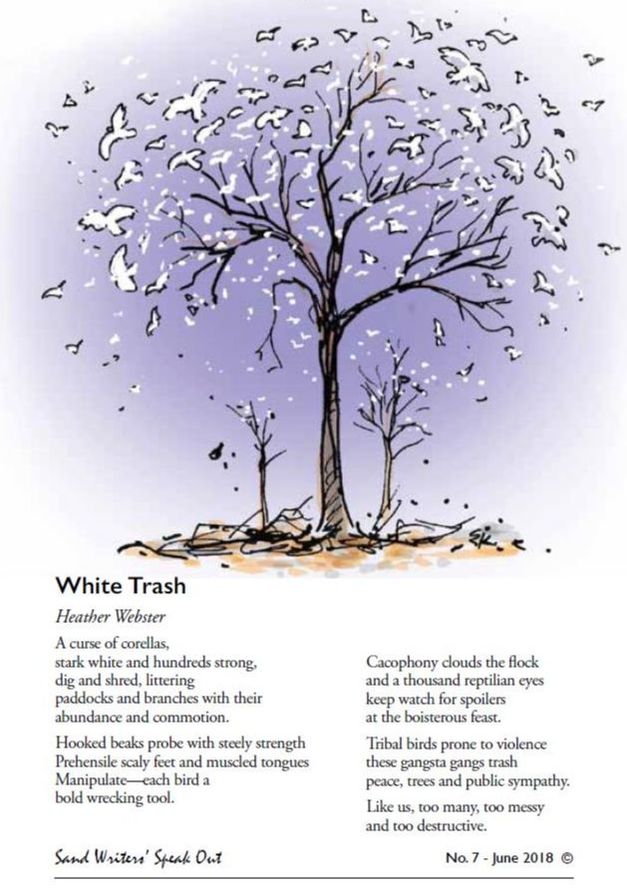 J.S. Scholz is a writer from South Australia’s Fleurieu Peninsula. His writing has been published in Australia, and as far afield as Norway. His short stories have won many writing competitions including winning the SA Writers’ Festival Short Story Award twice, and the EJ Brady Award. Little Islands is an anthology of his best stories.
0 Comments
Jude Aquilina the Milang poet and author and member of Sand Writers was awarded the 2018 Barbara Hanrahan Fellowship at Adelaide Writers’ Week. Established in 1993 and awarded biennially, the Fellowship is named in honour of one of the most distinguished South Australian Writers. Sand Writers congratulates Jude whose award winning poetry and stories always have an extraordinary freshness and include the sense of Jude being so aware and sympathetic to human desires, experiences and follies.
Well done Jude. Long may you continue to inspire with your extraordinary capacity to observe and take in all that comes to you as you present poetry and stories which are full of insightful writing about your world; so all we have to do is tune ourselves in to the warmth and optimism of your language. Dolma leant on the fence that separated her from the land her Tibetan ancestors had roamed for hundreds, if not thousands of years. A vulture flew within a few feet of her and landed the other side of the fence. “You are free!” she cried at the huge bird, though startled it did not leave but continued to watch Dolma as if listening intently to her pain. “Are you not satisfied! Do you want to feast on more of my family, are you like the occupier of our country that hungers for our land, our culture and never satisfied!” Dolma tried to dispel the anger she felt as she thought back on the events of the past few days and years knowing she now had to make a decision that determined the rest of her life.
Her momo’s (grandmother’s) sky burial had occurred four days after her death but Dolma was not permitted to attend, her role was complete once the period of praying for the departed soul was over, it having found a new and hopefully happier life. Dolma turned and walked the short distance to the cold and blackened interior of the house where her grandmother had lived for the past twenty years. She had learnt in school that the Chinese invaders forbade nomads to live in traditional Yurts and graze yaks as they had for generations, so they built them very cheap houses in clusters and forced tribes together who had been enemies for generations. Dolma felt like she had been here for weeks, not just the last few days. It was as if her grandmother had been waiting for her, as if she knew the conflicts and hardships that Dolma would have to endure to leave India and reenter Tibet but knew that she would come. They had only spent a few days together in the whole of Dolma’s life but the bond was strong. Just before she took her last breath she pointed to a bag, a bag made of the most beautiful embroidered material Dolma had ever seen. It was old, she knew that by the faded cotton and dirt that sat between the threads. When Dolma admired the intricate handiwork and began to open the bag her grandmother gently covered her hand with her own and wrapped their fingers firmly around it and the contents. Dolma knew she would have to wait to find out what it contained. Back in the house Dolma made a butter tea and picked up the bag, again feeling her grandmother’s warm fingers on her own. She was startled from her anticipation as Pema who had cared for her grandmother entered. “Do you know what that is?” she asked curtly as Dolma gently caressed the bag. “Do you know what a knock is?” Dolma thought but she was raised to be polite so remained silent. Dolma wanted to be alone when she opened the bag so she placed it back in her lap and waited. While Pema shuffled around the kitchen Dolma thought back on the events that had brought her here, a returned refugee, to a land she had not seen since she was a few days old. Her father had been a warrior and knew his family would be in danger of the Red Army advancing through the lands like a plague, killing anyone that opposed the ‘liberation’ of the people. Dolma often wondered what the people were liberated from. She recalled her earliest memories, which must have been around the age of two as it was when she saw her parents leaving the Tibetan Children’s Village to return to Tibet. Dolma didn’t know that at the time but the memory of looking out the window and being held by strong and safe arms of a woman who smelt like Tsampa and the Temple remained like it was yesterday. She never saw her parents again. They died in the mountains on the way home. Her teachers assured her they died peacefully knowing Dolma would be safe and receive an education in Tibetan language and culture. |
